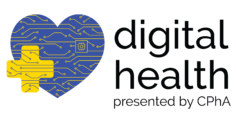Digital Health Corner Editor: Parisa Vatanka, PharmD, CTTS

Over 350,000 health-related mobile apps and thousands of additional digital health products and services have entered the market in the last decade, now reaching approximately 250 new apps every day [1]. Partially driven by the COVID-19 pandemic and relaxed FDA regulations, funding provided to digital health companies was greater in just the first half of 2021 versus any previous full calendar year [2]. Therapy is moving beyond tablets, capsules, and injectables to now include software-based products for prevention and management of disease. The potential for patients to receive care how they prefer is apparent, and the opportunity to improve health outcomes in a cost-effective manner is palpable.
Today, pharmacists must work to expand their repertoire, understanding the value that digital health products and services can bring to patients’ lives.
Technology Adoption and Patient Engagement: Considerations
What’s the first step to take when contemplating specific digital health products or services to recommend? Following a deliberate process for matching a patient with a digital tool is essential, as not all products or services will meet every patient’s lifestyle and healthcare goals. One helpful reference is the Digital Medicine Society’s (DiMe) Micro-Playbook for Pharmacists which assists in defining meaningful clinical data points, evaluating technology, and operationalizing a care plan [3].
Barriers to patient adoption may include lack of smart phone ownership, hesitancy to use wearable technology, out-of-pocket costs, or broad aversion to virtual care services or data sharing. Pharmacists can explore opportunities to overcome these barriers, such as improving patient awareness that employers and health plans may offer connected sensor products or other adjunct health benefits at no cost.
Regardless of recommendations provided, pharmacists should continuously check in. Has the patient stayed engaged with the product, utilizing it to its full potential? Have abnormal data points been addressed? Has information been shared with the full care team? If the patient has decided to not use the tool, it’s important to understand why. Motivational interviewing may bring the patient to realize benefits that were previously unseen. The pharmacist’s role should focus on understanding their population, the value of options in the market, and where a potential fit may occur.
Assessing Value to Support Effective Patient Consultations
Study methodologies provided by manufacturers continue to strengthen. Pharmacists should keep a keen eye on study limitations such as sampling bias and how clinical endpoints are defined; nonetheless, reviewing manufacturers’ publications on their websites and/or PubMed is beneficial. Evidence-based medication search engines – for example, Micromedex from IBM; Wolters Kluwer’s LexiComp and UpToDate – will certainly be expanding into digital health offerings. While some systemic reviews are available, additional independent meta-analyses are needed to deliver clear insight on how specific products effect various patient populations. Fortunately, the Institute for Clinical and Economic Review (ICER) – an influential non-profit focused on “evaluating the clinical effectiveness and value of new treatments, tests, and delivery system interventions” – continues to expand into digital products [4].
With a dedicated focus on understanding the value of innovative digital health tools, health outcomes will be improved in a cost-efficient manner. Nothing is more important.
References
- https://www.iqvia.com/insights/the-iqvia-institute/reports/digital-health-trends-2021
- https://rockhealth.com/reports/h1-2021-digital-health-funding-another-blockbuster-year-in-six-months/
- https://docs.google.com/presentation/d/125B_5JtY63YdSPTJWIRtc62sl6m7VJJ-J_KT7TX3jBI/edit#slide=id.g7a16f7722d_0_0
- https://icer.org/who-we-are/people/careers/?gh_jid=4187400003
Kyle Amelung, PharmD, is a digital health leader with expertise in disease management and wellness apps, smart-connected health monitors, and digital therapeutics. A pharmacist by training, his credentials include heading product management, commercial consulting, and strategic partnership teams for over 25 products and services. Within Fortune 20 and startup organizations, he has improved access to care for 50 million patients, including directing the industry’s first digital health formulary.
Dr. Amelung graduated from the University of Health Sciences and Pharmacy in St. Louis (previously St. Louis College of Pharmacy) where he also formerly served as an adjunct faculty member. He completed inpatient residency training at Boston Medical Center and is currently completing an MBA degree at the University of Massachusetts Amherst. He enjoys mentoring pharmacy and business students, speaking to pharmacists’ value in improving patient care outcomes, and exploring the great outdoors with his family in Denver, Colorado. Connect with him at kyle.health.

